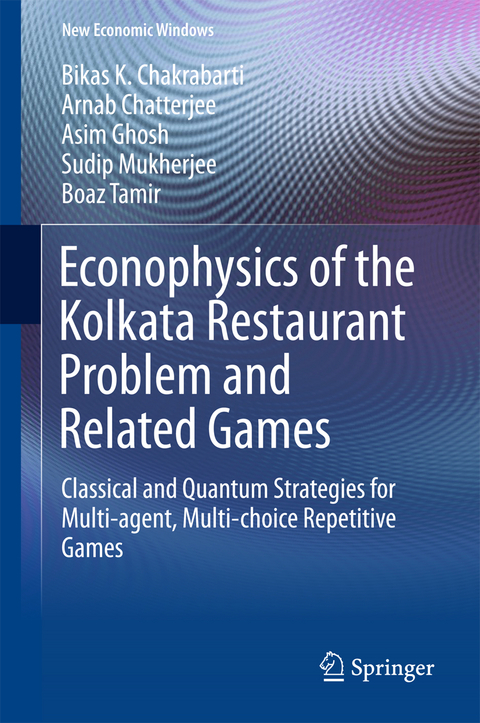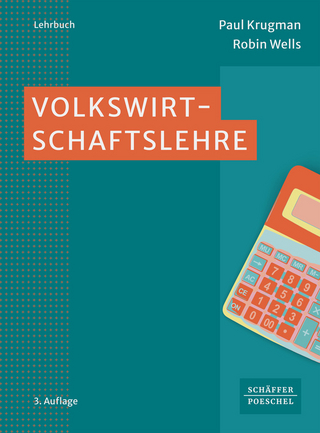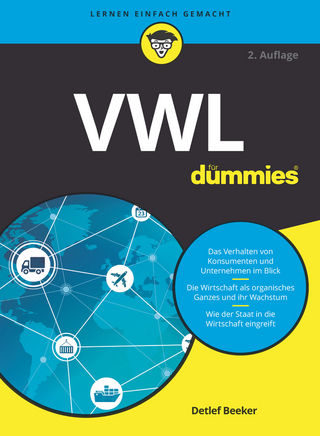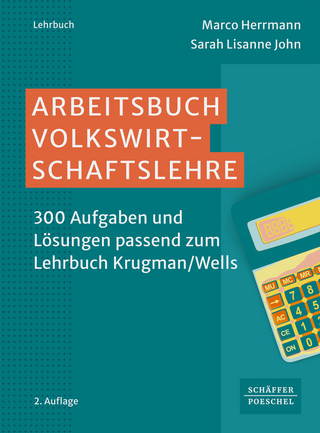
Econophysics of the Kolkata Restaurant Problem and Related Games
Springer International Publishing (Verlag)
978-3-319-61351-2 (ISBN)
This book provides the first comprehensive introduction to multi-agent, multi-choice repetitive games, such as the Kolkata Restaurant Problem and the Minority Game. It explains how the tangible formulations of these games, using stochastic strategies developed by statistical physicists employing both classical and quantum physics, have led to very efficient solutions to the problems posed. Further, it includes sufficient introductory notes on information-processing strategies employing both classical statistical physics and quantum mechanics. Games of this nature, in which agents are presented with choices, from among which their goal is to make the minority choice, offer effective means of modeling herd behavior and market dynamics and are highly relevant to assessing systemic risk. Accordingly, this book will be of interest to economists, physicists, and computer scientists alike.
Bikas K. Chakrabarti of Saha Institute of Nuclear Physics, Kolkata, India is a Professor of Theoretical Condensed Matter Physics at the Saha Institute of Nuclear Physics and a Visiting Professor of Economics at the Indian Statistical Institute. He has research interests in statistical physics, condensed matter physics, computational physics, and econophysics. He is a Shanti Swarup Bhatnagar awardee and a fellow of the Indian National Science Academy and Indian Academy of Sciences, and he has received the Outstanding Referee award of the American Physical Society. He has coauthored books published by Cambridge University Press, Oxford University Press, Springer, Wiley, etc. Arnab Chatterjee is a Research Scientist at the TCS Innovation Lab., New Delhi, India. He received his PhD from Jadavpur University in 2008. He has held postdoctoral positions at the International Centre for Theoretical Physics (Trieste, Italy), Centre de Physique Théorique (Marseille, France), Institute for Scientific Interchange (Turin, Italy), and Aalto University (Espoo, Finland). He was also a Visiting Scientist at the Saha Institute of Nuclear Physics, Kolkata, India. He has coauthored two books, published by Cambridge University Press and Wiley. He has extensive research experience in statistical physics and complex systems, complex networks, and socioeconomic systems in general.
Introduction.- Kolkata Paise Restaurant problem.- Phase transition in the Kolkata Paise Restaurant problem.- Zipf's law from Kolkata Paise Restaurant problem.- Minority Game and Kolkata Paise Restaurant problem.- From classical games, the Kokata Paise Restaurant game, to Quantum Games.- Some recent developments: A brief discussion.
| Erscheinungsdatum | 05.08.2017 |
|---|---|
| Reihe/Serie | New Economic Windows |
| Zusatzinfo | XI, 208 p. 43 illus., 33 illus. in color. |
| Verlagsort | Cham |
| Sprache | englisch |
| Maße | 155 x 235 mm |
| Gewicht | 497 g |
| Themenwelt | Wirtschaft ► Volkswirtschaftslehre |
| Schlagworte | Agent-based Models • Classical and quantum information processing • Data-driven Science, Modeling and Theory Building • Ecological science, the Biosphere • Economics • Economics and finance • Economic theory & philosophy • Economic theory & philosophy • Economic Theory/Quantitative Economics/Mathematica • Kolkata Paise Restaurant problems • Mathematical Physics • Minority Game • Quantum Information Technology, Spintronics • Quantum physics (quantum mechanics & quantum field • Quantum physics (quantum mechanics & quantum field • Social research & statistics • Social research & statistics • Stochastic strategies in quantum and statistical p • Stochastic strategies in quantum and statistical physics • The Kolkata Restaurant Problem • Theoretical, Mathematical and Computational Physic |
| ISBN-10 | 3-319-61351-0 / 3319613510 |
| ISBN-13 | 978-3-319-61351-2 / 9783319613512 |
| Zustand | Neuware |
| Haben Sie eine Frage zum Produkt? |
aus dem Bereich


